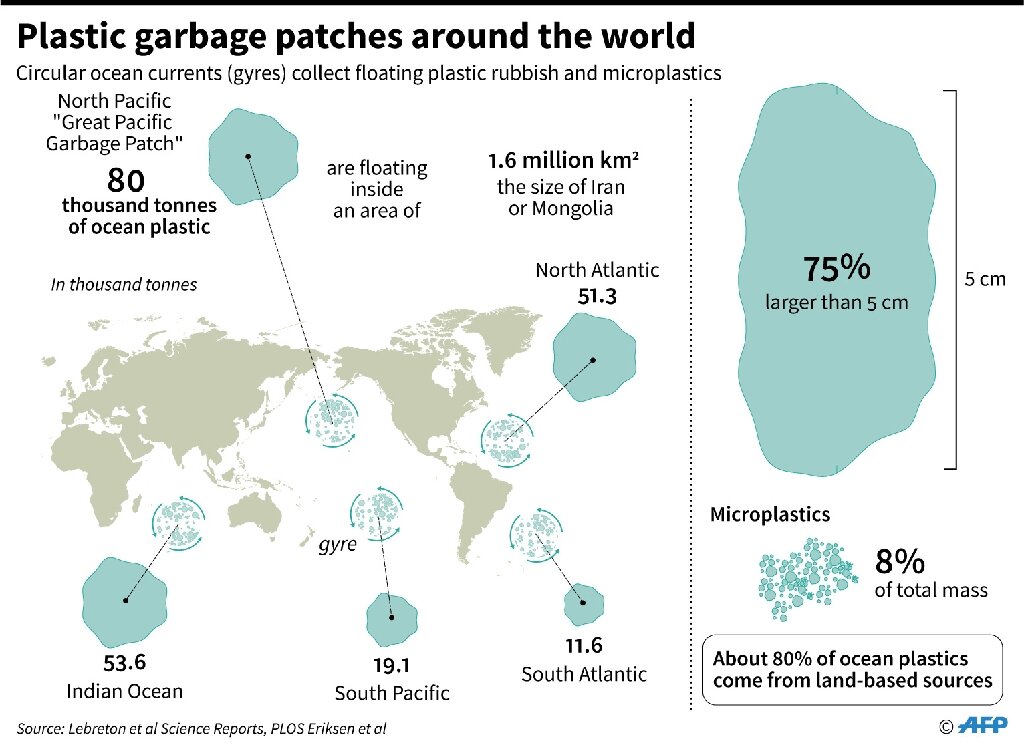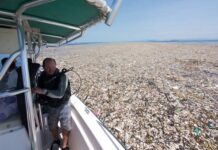After poisoning our environment, food chain, wildlife, and ocean, plastic has found its way to poison our stomach.
A study commissioned by the environmental charity WWF International and conducted by Australia’s University of Newcastle has found that we may be inadvertently ingesting 5 grams of microscopic plastic particles every week, which is equivalent to the weight of a credit card.
By analysing data from 52 peer-reviewed studies on the ingestion of microplastics by people, the researchers discovered that an average person is consuming about 2,000 tiny pieces of plastic every week – amounting to about 21 grams a month, just over 250 grams a year.
“These findings must serve as a wake-up call to governments. Not only are plastics polluting our oceans and waterways and killing marine life – it’s in all of us and we can’t escape consuming plastics. Global action is urgent and essential to tackling this crisis,” warned Marco Lambertini, WWF International Director General.
“While research is investigating potential negative effects of plastic on human health, we are all clear that this is a worldwide problem that can only be solved by addressing the root cause of plastic pollution. If we don’t want plastic in our bodies, we need to stop the millions of tons of plastic that continue leaking into nature every year. In order to tackle the plastic crisis, we need urgent action at government, business and consumer levels, and a global treaty with global targets to address plastic pollution. ”
One more awful evidence of the impact of #plastic in the ocean.
With 8M metric tonnes entering the #ocean every year plastic is already a major threat to marine life. #StopPlasticPollutionhttps://t.co/HKLEJZB3iIpic.twitter.com/uLOjlXvivk— Marco Lambertini (@WWF_DG) February 24, 2019
As per the study, the largest source of plastic ingestion is through water, both bottled and tap, all over the world. In the United States, 94.4% of tap water samples contained plastic fibres, with an average of 9.6 fibres per litre in comparison to plastic fibres in 72.2% of water samples in Europe and 3.8 fibres per litre.
The major source was shellfish, which tended to be eaten whole, so the plastic in their digestive system is consumed by humans unconsciously. Beer and salt also add plastics into our system, the study found.
The findings in the study is a harsh reality of how plastic pollution is widespread in the environment. (Remember: Plastic takes more than 400 years to degrade)
“While the awareness of microplastics and their impact on the environment is increasing, this study has helped to provide an accurate calculation of ingestion rates for the first time,” said Thava Palanisami, project co-lead and microplastics researcher at the University of Newcastle. “Developing a method for transforming counts of microplastic particles into masses will help determine the potential toxicological risks for humans moving forward.”
8.3 billion metric tons of virgin plastics had been produced worldwide from 1950 to 2015. That’s as heavy as 25,000 Empire State Buildings or a billion elephants. Of the 8.3 billion metric tons, 6.3 billion metric tons turned into plastic waste. Of that, only 9% has been recycled. If present trends continue, by 2050, there will be 12 billion metric tons of plastic in landfills. That amount is 35,000 times as heavy as the Empire State Building.
The plastic industry is anticipated to grow by 4% a year till 2025. Researchers fear that if the trend continues, the ocean will contain one metric ton of plastic for every three metric tons of fish by 2025.
The WWF said only hard targets backed by binding national commitments could hope to stem the plastics tide. Eirik Lindebjerg, WWF’s global plastics policy manager, told AFP:
“The global goal must be to reduce plastic leakage into nature to zero. We need a new, legally binding agreement to combat marine plastic pollution—it should be a stand-alone treaty like the Montreal Protocol or the Paris Agreement. “Zero plastics” does not mean no plastics used. But waste must be folded back into a circular economy, and plastics should no longer be made from fossil fuels.”







